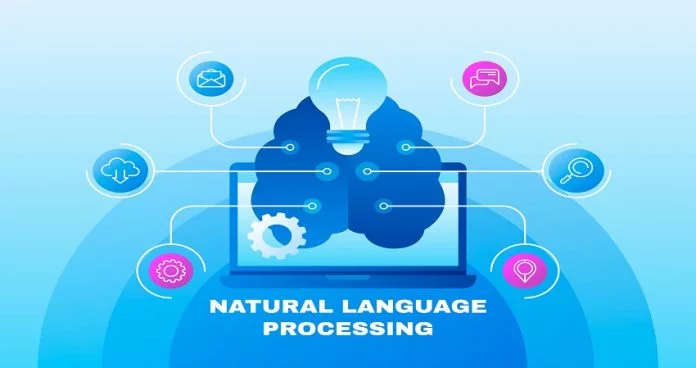Generative AI – especially ChatGPT – The widespread adoption of natural language processing has brought about a realization of its potential for organizations and individuals, analyst forecasts regarding generative AI, some exhibiting a level of cynicism reminiscent of the early days of the internet. Nevertheless, the potential of generative AI to revolutionize marketing and potentially replace human roles is significant and deserves attention. Regrettably, most discussions fail to adequately address a crucial question that marketers, content creators, and professionals in all fields should consider: What adjustments do I need to make to collaborate effectively with AI as my copilot?
According to recent MIT Sloan Management Review and Boston Consulting Group research, most employees (60%) already consider AI as a colleague rather than a job threat. When it comes to generative AI specifically, there is reason for optimism that its impact will be largely positive, similar to the broader impact of the internet, if marketers and content creators are willing to adapt. This adaptation involves being prepared to spend less time on tasks such as copywriting and sentiment analysis and instead focusing on strategic tasks such as content strategy and leveraging insights from natural language queries.
As marketers, our primary responsibility will be to help our organizations and colleagues leverage our uniquely human qualities, such as creativity and trust. In a recent presentation to Avanade’s global marketing community, my colleague Chris McClean (a digital ethics expert) and I discussed the areas where marketers need to take the lead in using generative AI in the enterprise.
Consider the potential harm to your organization’s reputation if your creative team utilizes images generated by a generative AI tool for a brand new marketing campaign, only to discover later that some of the images closely resemble another artist’s work and may constitute copyright infringement. Similarly, suppose your organization needs to conduct proper due diligence. In that case, there is a risk of reputational damage from a partner that utilizes & practices to source information for or train language learning models (LLMs).
If customers, employees, or other stakeholders were to discover that a machine generated a personal message, it could lead to a loss of trust. Therefore, it is crucial to prioritize people and utilize generative AI as a copilot, ensuring that authenticity and the appropriate tone of empathy and integrity are maintained, particularly in executive communications. Additionally, marketers and content creators must act as guardians of transparency, explaining how insights and messages are generated by humans and generative AI, all while striving to maintain trust among key stakeholders
Due to the size of most large language models (LLMs), it is difficult to determine how authoritative or current their content sources are. Relying on these tools to accurately explain a product or service can lead to factual errors. Even the latest version of the OpenAI LLM, which powers ChatGPT, is only trained on content until September 2021. Furthermore, generative AI LLMs may produce biased or otherwise inappropriate content, making it essential to be vigilant about the potential risks of using generative AI for customer communications, particularly in real-time touchpoints like chatbots.
Many individuals may not realize that third parties can access the information they enter into generative AI prompts. Avanade suggests utilizing the Microsoft Azure OpenAI Service over public models such as ChatGPT since the Azure service benefits from Microsoft’s continual investments in enterprise security, privacy, and compliance. However, it is vital for your organization to thoroughly investigate the level of access that generative AI services and partners have to your data. As marketers, we should draw on our experience with GDPR to assist our organizations in maintaining appropriate customer data protection.
To fulfill our role as creative and ethical advocates, we must first improve our knowledge and understanding of their expectations. This knowledge and experience will enable marketers to help our organizations more effectively evaluate the “why” of using emerging technologies like generative AI rather than being sidetracked by attractive imagery and polished content. It will also equip us to lead as responsible AI ambassadors, guiding our organizations to make wise choices regarding experiments and use cases based on critical factors such as high-quality, diverse data availability.
As organizations are shifting towards an AI-first approach, marketers must become AI-first too. According to Accenture research, LLMs like GPT-4 could impact 40% of working hours, implying that we could consistently have AI copilots by our side. We need to learn more about the data and behaviors that influence AI to work effectively with these systems. It’s crucial to start discussing what AI copilots mean for your organization and industry with colleagues and partners. As marketers, we should conduct small experiments with generative AI to evaluate the opportunities and risks and prepare our teams for an AI-first world. Delaying this learning could prove costly in the long run.
In conclusion, delving into the implications of Generative AI in natural language processing opens up a realm of possibilities. This rapidly evolving technology has the potential to revolutionize various industries, transforming the way we communicate, create content, and interact with technology.
As we witness the remarkable progress of Generative AI, it becomes evident that its impact on society, businesses, and individuals will be profound. The potential applications are vast, from generating creative and personalized content to aiding in language translation, customer service, and creative endeavors.
However, with such transformative power comes the need for careful consideration of the ethical, legal, and societal implications. It is essential to address concerns related to data privacy, bias, and the responsible use of this technology.
By exploring the implications of Generative AI in natural language processing, we can better understand its capabilities and limitations, ensuring its responsible and beneficial integration into our lives.

